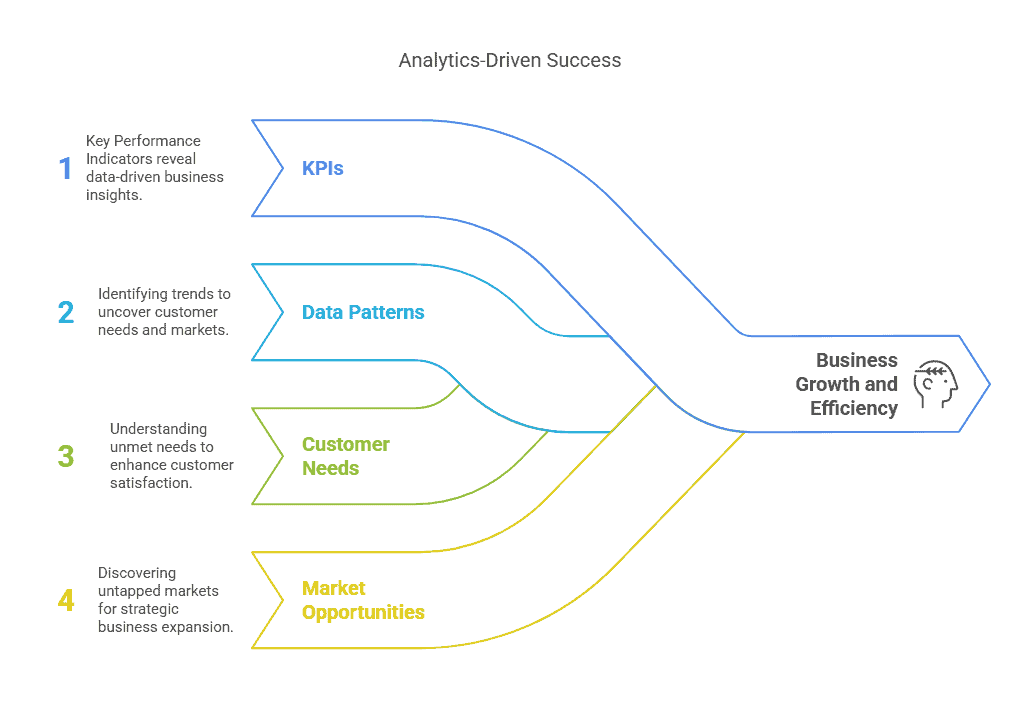How to Use a Data Strategy Framework: A Guide from an MSP in New Orleans
New Orleans, United States - July 7, 2025 / InfoTECH Solutions, L.L.C. - New Orleans Managed IT Services Company /
New Orleans Managed IT Services Provider Breaks Down Data Strategy
A data strategy framework is needed in any business strategy. It clarifies who owns what data, who maintains it, and who uses it. This enhances data accuracy, maintains controlled access, and makes reporting more reliable.
“Your business success begins and ends with your data architecture. That’s because everything that you need to know to plan your next move is in the details of your data.” – Brian Leger, Co-Founder of InfoTECH Solutions.
A framework outlines how to secure data, monitor for misuse, and respond to incidents. This reduces the risk of regulatory violations or financial losses resulting from unauthorized access or inaccurate reporting.
However, your data strategy is only as good as its implementation. You need a clear understanding of your business objectives, data sources, and what everything means. Once you have that, you can use technology to enhance your processes.
In this article, a premier managed IT services provider in New Orleans explains how to use technology effectively within your data strategy to fuel business growth and reach both short- and long-term goals.
What Is a Data Strategy Framework?
A data strategy framework is a structured plan that defines how an organization collects, manages, utilizes, and safeguards data to support its objectives. It ensures that data efforts align with business priorities and are sustainable across people, processes, and technology.
There are a few key data strategy components that every organization should follow. Here is what they entail.
| Data Governance | Defines policies, standards, and ownership to manage data quality and usage. |
| Data Storage | Determines how and where data is stored, including cloud, on-premises, or hybrid. |
| Data Access | Controls who can access what data, how they access it, and under what conditions. |
| Data Security | Protects data from unauthorized access, loss, or alteration. |
| Data Analysis | Extracts insights from data to support decisions through reports, models, or dashboards. |
| Data Integration | Connects data from multiple sources into a consistent, usable format. |
| Metadata Management | Tracks data definitions, lineage, and context to support discoverability and trust. |
| Data Quality | Monitors and improves the accuracy, completeness, and consistency of data. |
Why Your Business Growth Depends on Your Data and Analytics Strategy Framework
1. Better Decision-Making
Strong data analytics help your team spot patterns, outliers, and inefficiencies in real-time. This enables you to make decisions based on actual performance rather than assumptions. Businesses that act on data can course-correct more quickly and mitigate the impact of poor processes.
2. More Accurate Reporting
Dashboards and reports built on reliable data give stakeholders clear insights. This improves communication between departments, leadership, and investors. When everyone trusts the data, decisions move faster.
3. New Growth Opportunities
Patterns in your data can uncover unmet customer needs or untapped markets. These insights open doors that were previously hidden. Businesses that utilize analytics in this manner grow faster and with greater efficiency.

4. Clearer Customer Understanding
Data reveals what your customers value and what they ignore.
When you understand customer behavior, you can create more targeted products and services. This helps your business stay relevant and competitive. Companies that leverage customer analytics are 23 times more likely to outperform competitors and 9 times more likely to have loyal customers.
5. More Effective Resource Use
Data helps you track where time, money, and talent go. It shows which departments or projects create the most value. This supports smarter investment across the business. For example, CloudSecureTech reports that 44% of organizations overspend on underused SaaS tools. Having clear insights can reveal if your organization is one of them.
6. Stronger Team Accountability
With the proper framework, you can track individual, team, and department performance. Everyone works toward clear goals with measurable outcomes. This creates a stronger culture of accountability.
The Role of IT Services in Supporting Your Data Strategy Framework
Data Management
IT services help businesses bring order to their data by creating structured systems for storage and categorization. This reduces duplication, lowers the chance of manual errors, and makes it easier to retrieve accurate information. Ongoing IT support ensures systems remain stable and available, providing your teams with consistent access to the data they need without interruption.
Cybersecurity
Data that isn’t protected or properly managed can be exposed or misused. IT services mitigate that risk by employing tools such as endpoint protection, continuous monitoring, and early threat detection. These services help control who accesses your data and alert your team when suspicious activity occurs.
Better Analytics
To get value from your data, you need a reliable IT infrastructure that can process information quickly and make it available to your teams. IT services support this need by maintaining the networks, platforms, and systems that power modern analytics tools.
In one survey, 82% of organizations said they had problems running AI-powered analytics tools because their infrastructure couldn’t handle the data. This proves that a well-maintained infrastructure helps avoid delays and keeps analytics tools operating efficiently.
Streamlined Execution
A data strategy is only useful if it can be executed. Managed IT services give businesses access to the technical skills and systems needed to support that execution. This includes network monitoring to maintain uptime, compliance support to meet regulatory demands, and disaster recovery planning to reduce downtime if something goes wrong.
Scalable Solutions
As your data strategy evolves, your infrastructure needs to adapt. IT services offer scalable solutions like cloud platform management, which allows you to expand or adjust resources without disrupting operations. This flexibility helps your business keep pace with change while staying focused on your long-term data strategy goals.
Choose the Leading MSP in New Orleans That Aligns With Your Data Strategy
Implementing a strong data strategy framework helps your business make better decisions, improve reporting, and operate more efficiently. However, to get real value from your data, you need the right IT support behind it.
InfoTECH Solutions provides managed IT services, cybersecurity, cloud hosting, and business continuity support. Our team helps businesses organize, protect, and use data in ways that support real growth. We focus on reliability, fast response times, and solutions that match your long-term goals.
If your business needs a trusted partner to support your data strategy, the most trusted New Orleans managed IT services team at InfoTECH is here to help.

Contact Information:
InfoTECH Solutions, L.L.C. - New Orleans Managed IT Services Company
3014 Dauphine St Suite 100
New Orleans, LA 70117
United States
InfoTECH Solutions, L.L.C. InfoTECH Solutions, L.L.C. - New Orleans Managed IT Services Company
(833) 390-0979
https://infotech.us/
Original Source: https://infotech.us/how-to-use-a-data-strategy-framework/


